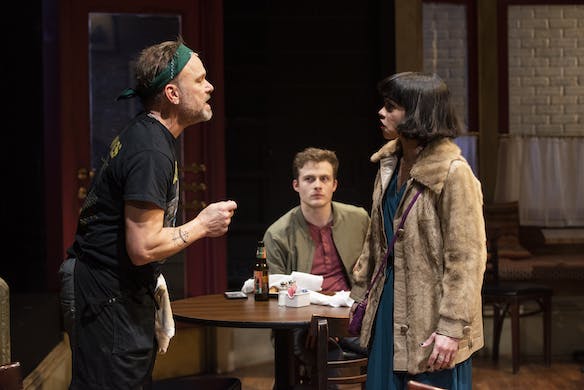
A Tale of Two Harvards
By THE NEW YORK SUN
|Its many assets include an acclaimed playwright, Simon Stephens, an estimable veteran director, Neil Pepe, a deep cast led by a two-time Tony winner, Norbert Leo Butz, and a set of compelling characters.

Already have a subscription? Sign in to continue reading

By THE NEW YORK SUN
|
By BENNY AVNI
|
By GEORGE WILLIS
|$0.01/day for 60 days
Cancel anytime
By continuing you agree to our Privacy Policy and Terms of Service.